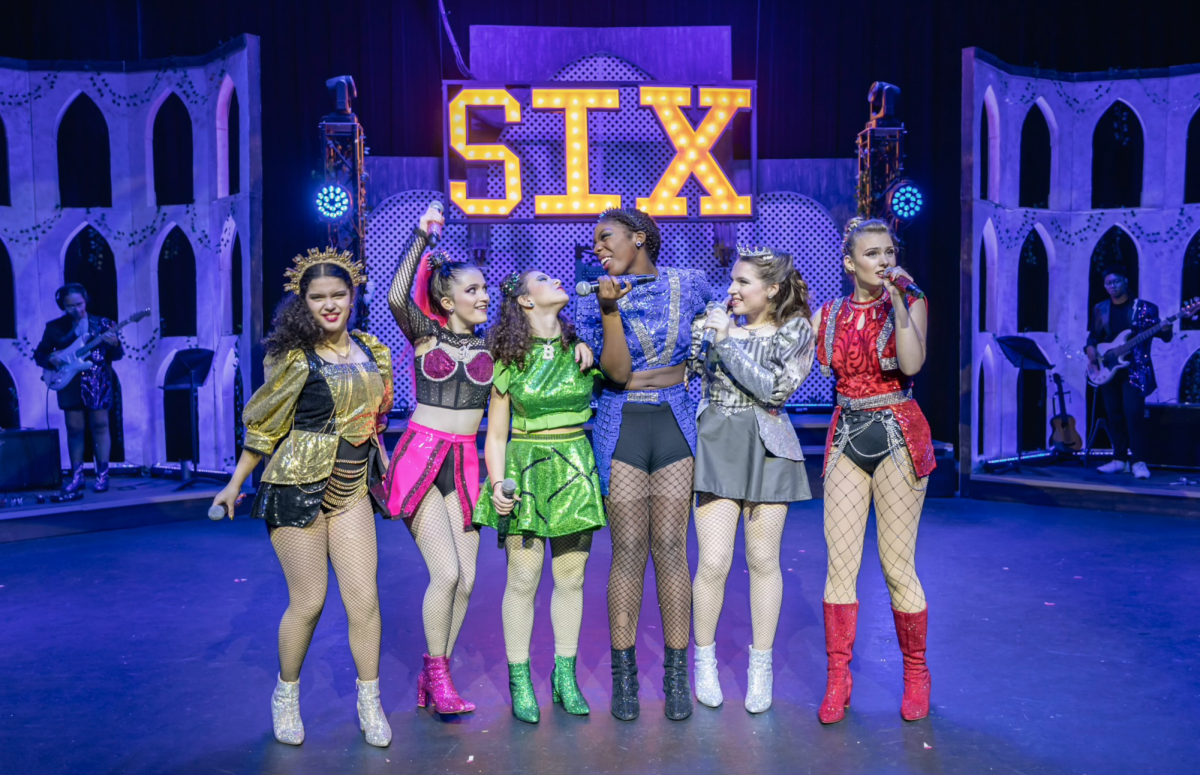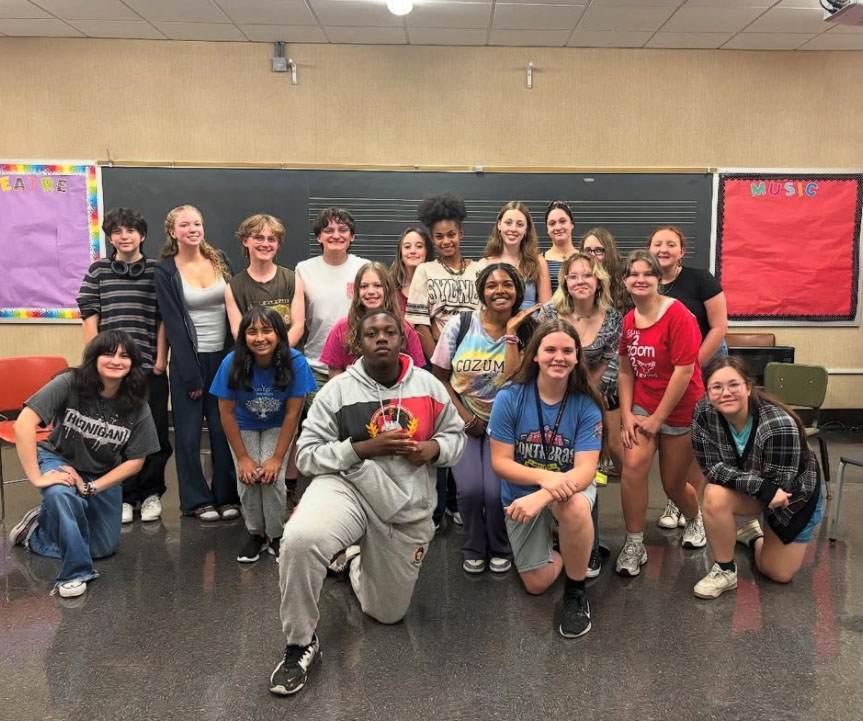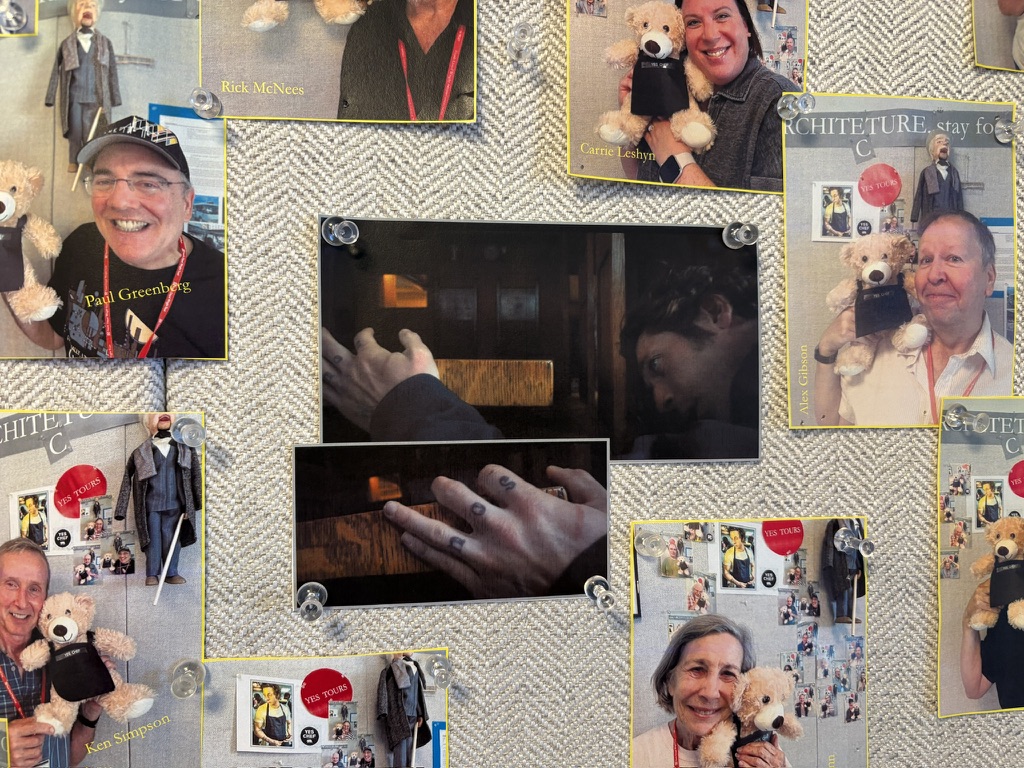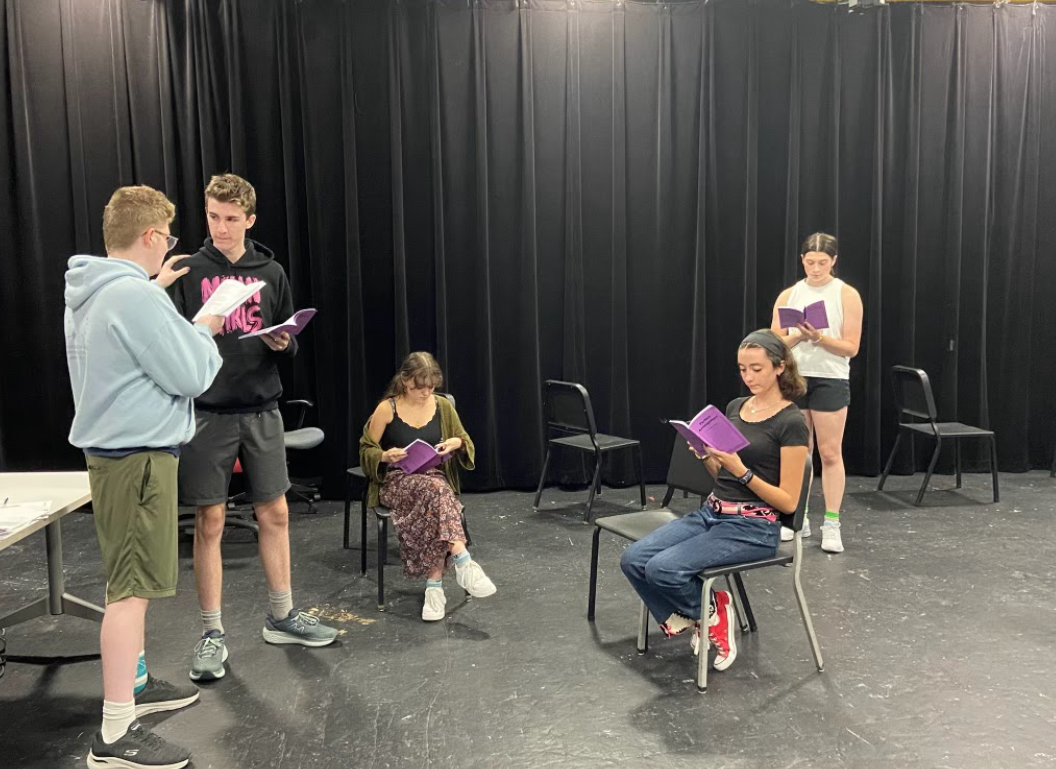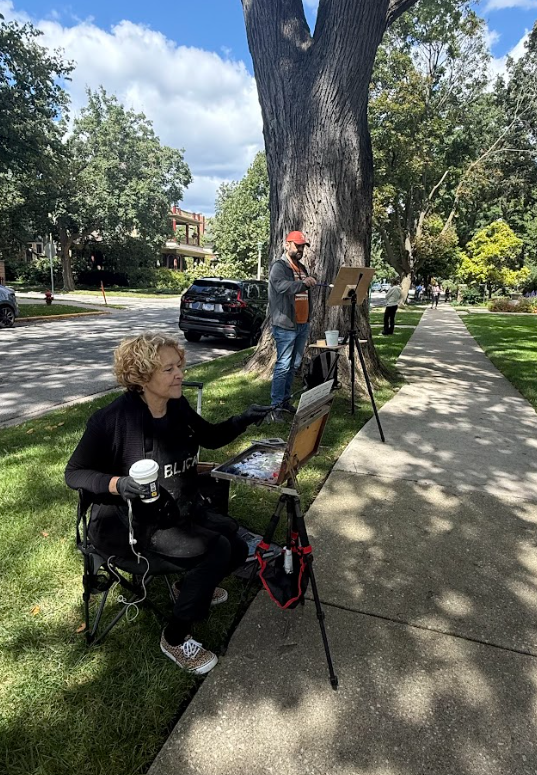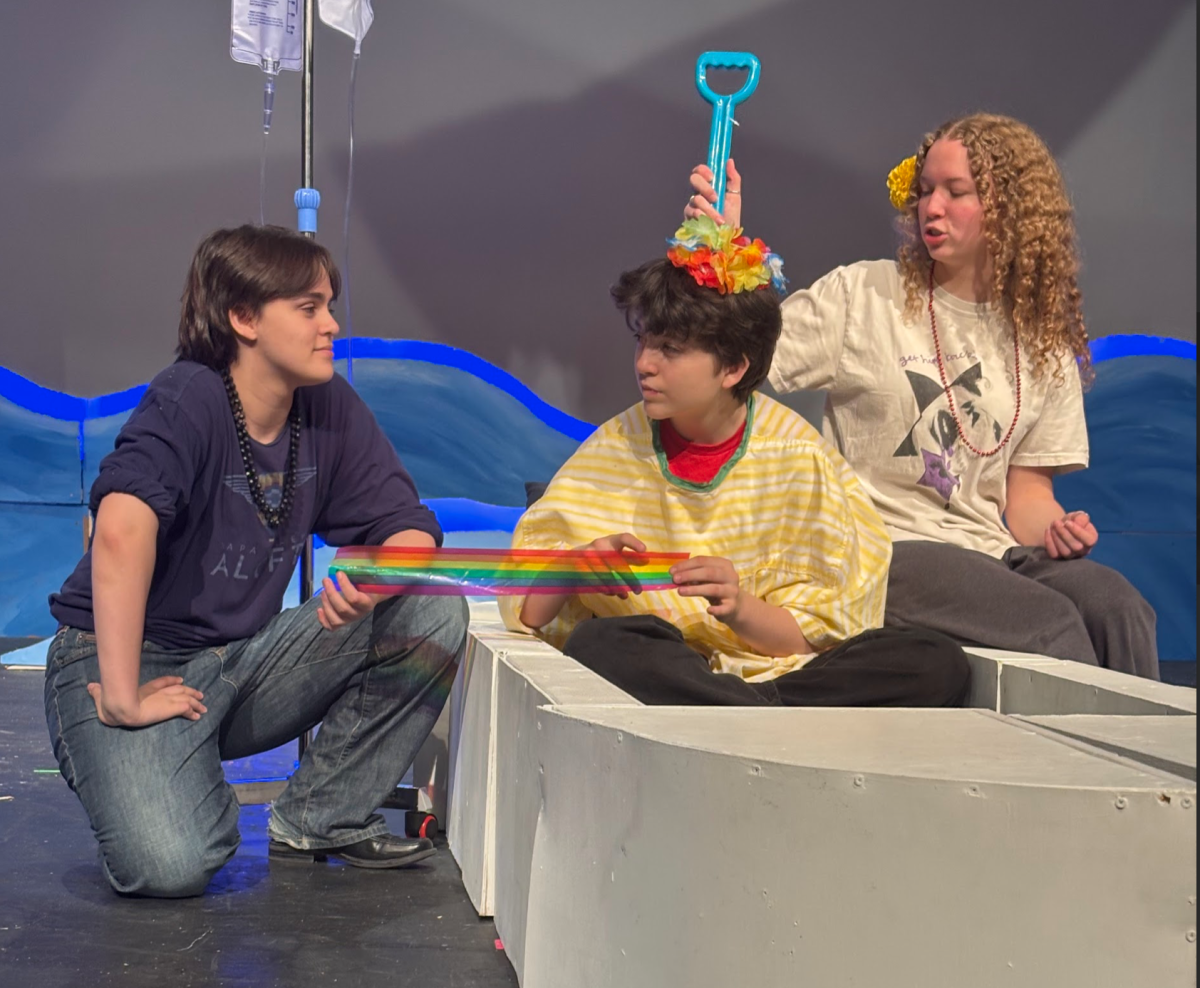As I stared at the shoddily assembled drum kit, I tried to tamp down my impos- tor syndrome among a more experienced theater crew—a feeling of good-crikey-I- shouldn’t-be-here. A cool yet stark light bathed the set, the actors and my sheet music, until the Little Theatre went dark. As the show began and the actors’ foot- steps scattered for their places, I heard my first cue:
“DIVORCED!”
I replied with a:
“DOOM-DOOM!”
Oak Park and River Forest High School’s production of “SIX: Teen Edition” was the first theatrical project I’ve ever had a hand in. Consequently, the infamously grueling tech week leading up to opening night on Oct. 4 began as a mildly harrowing experience.
OPRF sophomore Braden Estanilla played bass on stage next to me. Having played bass for “The Camper,” “Mean Girls” and “Grease,” “SIX” was his fourth production. But there’s new ground here for both of us. First of all, the band played with a click track.
A click track is a live metronome used by performing musicians that dictates the tempos of songs. The click track is crucial for a show like “SIX” because it features audio cues, sound effects and electron- ic music that (a) cannot be replicated by acoustic instruments, (b) are precisely programmed and require tempo-perfect accompaniment from the band and (c) set the pace for the actors, who’ve been rehearsing choreography to tempo-per- fection.
For the “SIX” tech week rehearsals, the band needed to wear headphones with a quarter-inch adapter attached to the jack at the end of the cord. The adapted jacks went from me, Estanilla, OPRF senior guitarist Christina Hughes and freelance music director and keyboardist Andrew Luzwick to Luzwick’s mixer.
Critically, only the band hears the click track, a privilege afforded to us on account of remaining stationary figures on the set; the actors don’t have in-ears to hear the metronome, so our timekeeping must be virtually impeccable.
In addition to the click track, another novel thing about the production was the set. That is, the band members were actually on stage with the actors. This was actually somewhat familiar territory for me as a drummer for School of Rock Oak Park’s Show Team. For Estanilla, however, this was virtually uncharted territory within the context of a theater production. “That’s why ‘SIX’ is so unique and I’m really excited to do it. It’s less of a theater show and more of like a concert,” Estanilla said.
There are two layers of novelty about this particular aspect of the show. First of all, there are very few instances of an onstage band in any production. The musical “Hadestown” is another play that utilizes a live band like this, but most other musicals place the band or the orchestra in the “pit” below the stage.
Additionally, Estanilla had been pre- paring for “SIX” for months. His prepara- tion consisted of watching different high school productions of the musical online. In his research, he found that OPRF’s ver- sion was the only instance using a live on- stage band as well as the electronic tracks. Other schools either used the pit or the tracks.
With all this novelty thrust upon me (I’d apparently been recommended, and I volunteered myself), I began tech week a little nervous. Whereas Estanilla had been preparing for months, I’d been given roughly two and a half weeks from when I was first called to do “SIX” to the beginning of tech week. What’s more, I’d not even heard of the musical; my first ex- perience of the show was as a part of it.
A part of my nerves was due to the ancillary role of the band in any given musical. When the band is the focal point of a show, mistakes I make can be more- or-less forgiven as intentional as long as I adhere to the general form of the song. Scores written for musicals, however, are precisely written, such that the quality of the show as a whole is largely contingent on a matched precision from the band members. As Estanilla said, as pit musicians, “you’re not the focal point, but you’re really, really, really important.”
When learning about tech week, I’d been told that we’d end up running the show roughly five to nine times by the end of the week. It was hard at first. Indeed, the first “DOOM-DOOM” of the week came across initially as a “rink- dink” –though this is not how I remained.
By opening night on Oct. 4, I had gained familiarity, competence and, most importantly, confidence, to the point where I had a profound realization that “SIX” would prove to be one of the most fun projects I’ve ever worked on. As I grew more confident, I began to notice the other aspects of the production, like the incredibly talented cast.
To be honest, I don’t remember much about what happened during the per- formance on opening night; I generally blank out during highly anticipated performances such as these. However, after starting the week with nerves so crazed, I ended it, during a discussion between the people who worked on the show and the critics who would determine our eligibil- ity for the Illinois Theater Fest, unable to stop smiling.

